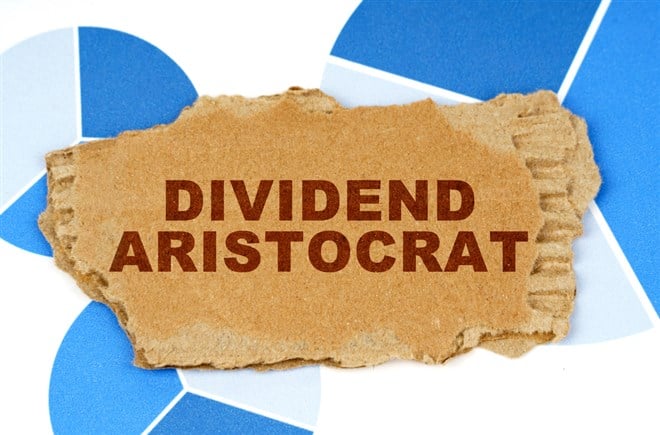
For investors with an income or dividend snowball strategy, the good news is that there is an emerging universe of new dividend aristocrats to add to one’s portfolio. Some of these companies also come from sectors of the economy that are presently underserved, making them much-appreciated additions to investors' watch lists.
We will uncover what are believed to be two of the best companies that will meet the criteria of becoming a dividend aristocrat in the foreseeable future. These picks were judged by their competitive moats, operating history, and the consecutive years it has increased its dividend payments.
Microsoft
Microsoft (NASDAQ: MSFT) has seen a surge in popularity following its $10 billion investment in OpenAI, the maintainer of the disruptive ChatGPT application. Some investors predict that a version of ChatGPT integrated into Microsoft’s Bing search engine will take clicks away from Google, Alphabet (NASDAQ: GOOG), perhaps giving it a well-deserved kick up the pants also siphoning away a considerable amount of ad revenue.
Large language models (LLMs) like ChatGPT will certainly add a new competitive dimension in the online advertising space. Still, there are other disruptive avenues Microsoft is exploring that may yield future synergy. In December last year, Microsoft invested $5 billion in the London Stock Exchange Group (LSEG), to develop a shared financial data platform. This platform aims to consolidate siloed applications used in the financial services industry into one, allowing customers to generate sophisticated insights from their data.
The beauty of models like ChatGPT is that they can explain these sophisticated insights in plain language while other moving parts of the platform do the heavy lifting of calculation. In the future, users can get customized reports and executive summaries generated from applications such as Excel, saving users hours and unlocking new values from their data. This is just one potential synergy that comes to mind, and remember ChatGPT was only released in November last year with new model updates on the horizon.
On the dividend front, Microsoft has increased its dividend for twenty consecutive years, so it’s five years away from meeting the threshold of becoming an aristocrat since it meets the other requirements by a large margin. The company’s dividend yield is below average at 1.05%, but on the upside, its payout ratio stands at 30.22%, thus making it very sustainable moving forward.
Nike
Nike (NYSE: NKE) may already be a staple of investors’ portfolios due to its sector, market cap, and iconic brand recognition. When the company becomes a dividend aristocrat, it will undoubtedly become an even stronger pick, and it’s well on its way there. The company has increased its dividend payment for twenty-one years to receive its place in the halls of dividend royalty in four years.
Unlike Microsoft, there are no crazy value catalysts for Nike on the horizon, which may be a good or a bad thing, depending on how you view it. More room for growth means there’s more room for capital appreciation. But on balance, there’s also a corresponding execution risk of failing to capture that growth and possibly being distracted from maintaining the core business.
Nike was selected to be part of this list mostly because its brand will have enduring value. Its fundamentals and future outlook are also superb. The company’s dividend yield is 1.09%, but its 3-year dividend growth rate is 11.51%, higher than the mean growth rate of 9.52% for consumer discretionary companies.
Catalyzing the bullish thesis for Nike is that its earnings per share (EPS) is set to surge 23.72% in the coming year by analyst estimates, from $3.12 to $3.86. Although equities may still be correcting to their fair values, Nike is a company with a far lower price-to-earnings (P/E) ratio than the market average, which stands at 35.17, compared to 141.30.














